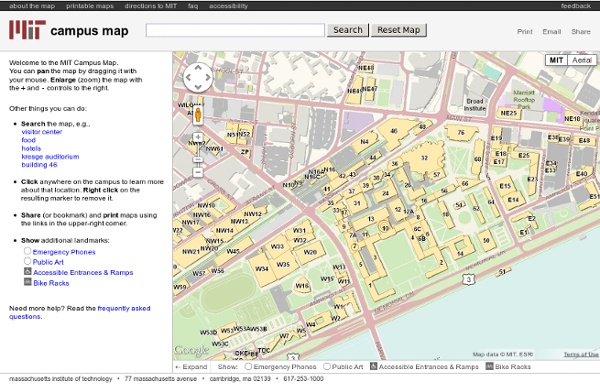



State College/ University: University of Washington Cost & Aid Basics If admitted to MIT, we will make sure that you can afford to come to MIT. That's a strong statement with which to begin this page, but it's also true. MIT is committed to being financially accessible to the students that we accept. If you belong here, then we will work with you and your parents to help you finance your education. There are three principles that govern financial aid and admissions at MIT. Need Blind Admissions The admissions process at MIT is need-blind for all students, foreign and domestic. Need-based Aid MIT only confers financial aid on the basis of financial need. You may qualify for private scholarships based on your merits; if you do, then they become part of your financial aid package. Meet Full Need MIT will meet every single cent of your family's demonstrated financial need. The total price for MIT - tuition and fees, housing and dining, expenses, etc. - is in excess of $60,000 a year. Last year, MIT awarded over $91.9 million in MIT Scholarships to undergraduates.
Course Requirements Beginning with students entering in Fall 2001, all MIT undergraduates must fulfill a Communication Requirement (CR) by completing a program of four communication-intensive (CI) subjects that teach written and oral communication. The CR is designed to ensure that the students’ communication training is distributed over several years of study. To achieve this goal, the Requirement is structured so that students complete at least one CI subject in each year of undergraduate study. Two of the required subjects are chosen from a group of designated subjects offered in the Humanities, Arts, and Social Sciences curriculum (CI-H subjects). CI-H subjects (Communication Intensive in the Humanities, Arts, and Social Sciences) provide a foundation in effective writing and oral communication. As a result of this structure, a wide spectrum of communication-intensive subjects is offered across all five Schools throughout the Institute. Back to top
Minimum GPA Required Academic Preparation for Medical and Health Profession Schools Medical/Health Profession School Requirements » GPA » Standardized Exams » Study Abroad » Medical/Health Profession School Requirements There is no required major for admission to health profession schools; however, schools do require applicants complete a number of science and writing courses prior to admission. Two semesters of Biology with lab Two semesters of Inorganic Chemistry with lab Two semesters of Organic Chemistry, with lab Two semesters of Calculus Two semesters of Physics Two semesters of English/humanities courses Timeline The majority, if not all, of your prerequisite courses should be completed at the time of starting the application. Important Notes about Fulfilling Prehealth Requirements Pass/No Record and Pass/Fail: Freshman pass/no record premed/health courses are accepted by health profession schools. Chemistry Requirements: Resources Your GPA is a critical admission criterion. Standardized tests [top]
Economic Impact home > ivy tech community college's economic impact It’s well known that Ivy Tech Community College is a significant contributor to the Indiana economy. Now, a newly-released study provides insight into the specific value of Ivy Tech’s contributions to its various stakeholders and to the state as a whole. Here are a few highlights from the 2011 Ivy Tech Community College Economic Impact Report: Ivy Tech’s cumulative economic impact is $8.2 billion in annual total benefits. Another example of the economic impact of Ivy Tech is the affordable cost of tuition for Hoosiers. “The value of a postsecondary education is well documented. Given Ivy Tech’s position as Indiana’s largest college, the cumulative return on students’ investments is considerable. Snyder added that one of the most vital numbers in the study is the return on investment provided to Ivy Tech students, given the College’s focus on student success. View campus-specific economic impact reports below: Bloomington Columbus/Franklin
Number of Campuses Coure requirements Select your campus of interest below for additional information and resources. Click here to view the hours of operation at your local campus. Bloomington BLOOMINGTON200 Daniels WayBloomington, IN 47404(812) 330-6013 Fax: (812) 330-6106BL-AdmissionInquiry@lists.ivytech.edu Admissions Hours: Monday - Thursday 8 AM - 6 PMFriday: 8 AM - 5 PM To schedule an appointment with an admissions advisor, please click here. Hoosier Link Program: Are you an International student? Central Indiana (Franklin, Greencastle, Indianapolis, Noblesville) 50 West Fall Creek Parkway North Drive Indianapolis, IN 46208 Fax: (317) 917-5919 Email: in-admissions@ivytech.edu We're available by phone: 7:00 am - 1:00 am daily (Eastern) Or chat online now with an Ivy Tech Representative. Admissions Welcome Center Jaime Sheperd jsheperd36@ivytech.edu Columbus Ivy Tech Community College - Columbus/Franklin Region locations & phone numbers East Central (Anderson, Marion, Muncie, New Castle) Marion261 S. Or
Costs Your education doesn't have to cost a fortune, thanks to Ivy Tech Community College. Ivy Tech offers the most affordable education in Indiana, less than half the cost of other colleges and universities. Ivy Tech allows you to make the most of your time and your money. Tuition rates (per credit hour) for 2013-14 Tuition rates (per credit hour) for 2014-15 Fees and other expenses Consumable fees apply for some programs and courses Online Class Fee: $20 per credit hour for each online class Nursing and Dental Hygiene Program Fee: There is a charge of $62.50 per semester for students in either program. Financial AidMany types of financial aid are available, such as grants, scholarships and student loans. Payment of Fees All tuition and fees must be paid or arranged to pay by 11:59pm on the following dates: Payment methods include: Financial aid Personal check* Cash Visa or MasterCard Tuition payment plan